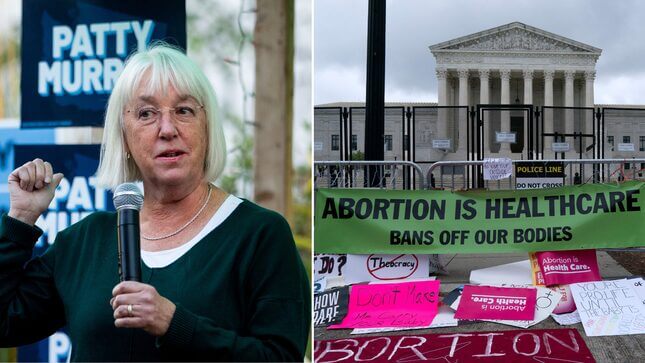Senate Dems Propose $350 Million Fund to Cover Travel and Abortion-Related Costs
“There’s been a sea change in how we’re talking about and acting on abortion" post-Roe v. Wade, Sen. Patty Murray (D-WA) told Jezebel.
AbortionPolitics

In the handful of states that have banned abortion since June, accessing abortion now requires pregnant people to navigate an even more convoluted web of costs and barriers. The average travel time for people seeking abortion has tripled since the Supreme Court overturned Roe v. Wade, according to a recent study in the Journal of the American Medical Association
Last week, Democratic Senators Patty Murray (WA) and Tammy Baldwin (WI) introduced the Reproductive Health Travel Fund Act, which would authorize the Treasury Secretary to annually award $350 million in grants to organizations that help people pay for the associated costs of getting an abortion. The bill would prioritize groups that help abortion seekers based in states where abortion is banned or more severely restricted.
The Reproductive Health Travel Fund Act stipulates that the range of costs abortion seekers may encounter in trying to get the health service includes transportation, lodging, lost pay from time off work, child care, meals, and translation and education services for non-English speakers. Murray and Baldwin’s proposed fund wouldn’t pay for the abortion itself, as the Hyde Amendment prohibits federal funding from covering most abortions—but the bill is an important step toward recognizing that no one should be forced into debt for choosing to not be pregnant.
In a phone interview with Jezebel on Wednesday, Murray acknowledged that her bill faces an uphill battle, as Democrats hold only a narrow majority in the Senate, and of course, Republicans flipped the House last month. But Democrats are finally starting to think about how to be more proactive on abortion, rather than just playing defense every time Republicans introduce a ban. “I’ve been here long enough to know that when the American people stand up and demand action, that’s how you get things done,” Murray, who was elected to the Senate during 1992’s Year of the Woman, told Jezebel.
-

-

-

-

-

-

-

-

-

-

-

-

-

-

-

-

-

-

-

-

-

-

-

-

-

-

-

-

-

-

-

-

-

-

-

-

-

-

-

-








































